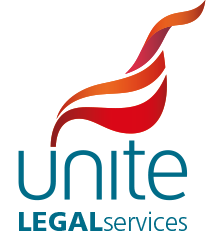Unite Legal Services has successfully recovered compensation for a Unite member who raised health and safety concerns in his workplace.
Unite Legal Services recently represented an advanced scaffolder who was working offshore as a scaffold chargehand and foreman.
During his employment, our member was instructed by the maintenance team to have a scaffolding team erect a cantilever scaffold because a crane had broken down. The maintenance team advised that they required a platform to lower food down from the production platform crane. Our member began to construct the platform but was then instructed to alter the platform to allow for a steel container to be suspended above it from the crane.
Our member responded: “There is no way I’m putting my name to that, it is dangerous”. He further explained that if the crane failed, the scaffold would not take the weight of the container crashing down and, therefore, refused to do the job. This refusal was supported by the onsite HSE adviser who intervened to declare the job was dangerous. The manager then stated: “I’ll get you back.”
At the end of the working week on a Friday in November, our member took his overtime timesheets to the same manager to obtain the appropriate authorisation for overtime, as he always had done previously. However, the manager advised our member that he would be sanctioned and that he would not get his overtime payments. Our member queried why this was the case but no answer was provided. When a colleague enquired on his behalf, another manager was quoted as stating: “He’s not getting it he’s messed it up for us out there.”
Our member informed Unite and subsequently raised a grievance but only to receive a flat refusal.
Our member’s refusal to carry out the management instruction was based on a genuine concern for the health and safety of his colleagues. More importantly, as our member reported this to his employer and raised that the health and safety of colleagues could be in danger, it is likely that this disclosure would have been considered a protected one for s43B (1) of the Employment Rights Act 1996 i.e. a “whistle-blowing” situation. The conversation whereby his manager stated “Yes but I’ll get you back”, also suggested that the employer sanctioned his wage due to his protected disclosure.
The employer rejected our member’s grievance and did not respond during the early conciliation. Therefore, Tribunal proceedings were lodged.
The employer agreed to settle the claim for full reimbursement of our member’s overtime and an additional award for injury to feelings. The sum is confidential, however, it was tax-free and the additional injury to feelings element meant a 66% extra cost to the employer.
This case highlights how beneficial trade union membership is in the context of wage disputes. While our member’s initial grievance stemmed from the fact that the employer owed him overtime payments, they subjected him to a ‘detriment’ by refusing to pay his overtime for having raised genuine health and safety concerns.
Non-trade union members will not have had the solidarity and support of their fellow HSE stewards or the union to raise health and safety issues in the first place. More importantly, being a member of the union meant that we were able to identify other potential claims in addition to unlawful deductions from wages arising from unscrupulous employers looking to punish their employees unjustly for raising genuine health and safety concerns.









